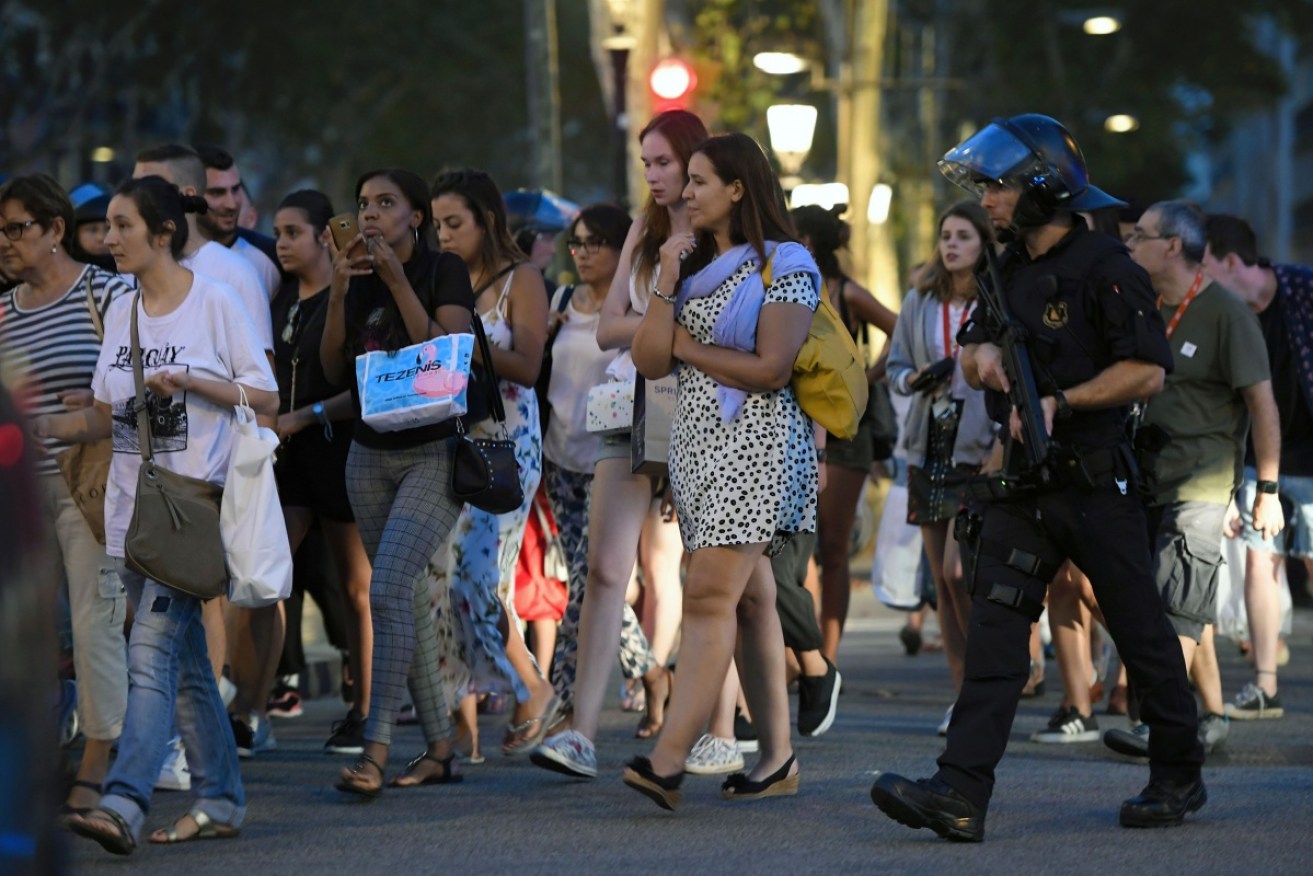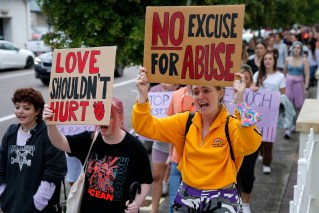Chance you’ll be killed in a terror attack too low to calculate: experts


Experts say fears about being the victim of a terrorist attack in Australia may be unfounded. Source: Getty
With the world reeling from the latest terror incident in Barcelona, Australians are as wary as ever that any public gathering could become an easy target for an improvised attack.
But statistics suggest you should not spend another moment worrying about it.
More than half of Australians are concerned that they or a family member will be a victim of terrorism on home soil.
But in reality, the numbers show you’re more likely to die from stress than to be killed in an ideologically-motivated incident in Australia.
You’re also more than twice as likely to die from a crocodile bite than a terrorist attack. Gangrene is four times deadlier, and falls from cliffs claimed 13 times as many victims over the same period of time.
According to a recent ANU poll, most Australians are “somewhat to very concerned” about the possible rise of Islamic extremism, with most believing the government could do more to prevent a domestic attack.
The concerns are understandable, given Australia currently ranks 59th out of 130 on the Global Terrorism Index, placing us lower than the US at No. 34 but much higher than our Kiwi neighbours at 112. This year, Australia has been the stage for two separate terrorism incidents.
Professor Gabriele Suder, of the Melbourne Business School, at the University of Melbourne, said the increased sense of danger was due to the way attacks have evolved.

Counter-terrorism police in Sydney last month. Photo: AAP
“Terrorism has changed its characteristics and they attack more of the soft targets. They’ve gone from attacking symbols like government structures to soft targets. It’s really about intimidating everybody,” she said.
Notable attacks on soft targets, many of them lone-wolf incidents, seem to have become more common in this decade both home and abroad.
But what data is available show the risk is simply not as high as it might seem.
Life insurance agencies focus on the likelihood of a range of causes of death, but the possibility of being killed in a terrorist attack is so remote for Australians that it’s almost impossible to get a solid figure on where it places in the hierarchy of risks.
“It would rank very, very low. For example, I would doubt we’ve ever had a life insurance claim arrive out of a terrorist attack … it’s as low as the lowest,” says Allianz’s general manager of corporate affairs Nicholas Scofield.
“I don’t think it would be an actuarily assessed risk on the pricing of life insurance. The chances are so small as we currently stand here today, it probably would have no impact on a person’s premium even if you could ascribe some sort of probability to it.”
A spokesperson for the Actuaries Institute confirmed they did not have a direct assessment on the risk of death from terrorism due to its minuscule likelihood.
Since September 11, 2001, there have been nine deaths resulting from an act of terrorism on Australian soil.
The most recent, during the Brighton siege, occurred in June.
When comparing nine years of ABS cause-of-death statistics with the number of fatalities due to terrorist acts in Australia, terror falls somewhere between “exposure to sunlight” and “getting struck by lightning”.
The ABS cause-of-death data does not include terrorism as a category, making a completely accurate comparison unfeasible.
While it’s not a perfect indication of the danger posed, it illustrates just how obscure the threat has been here post-9/11.
It’s a different story for Australians travelling abroad, however.
The Department of Foreign Affairs and Trade say that their Australian Victims of Terrorism Overseas Payment records indicate that, since 2007, 13 Australian fatalities have occurred as a consequence of international terrorist events.
Professor Suder said for Australians on home soil, one of the most important aspects of responding to terrorism was to be conscious, but not afraid – or else run the risk of giving the perpetrators what they want.
“This doesn’t mean we change our lifestyle, it doesn’t mean we don’t go to events,” she says.
“We go but if we see a bag lying about that we can’t identify or we see strange behaviour, we might just want to be more cautious about it and report it.”









